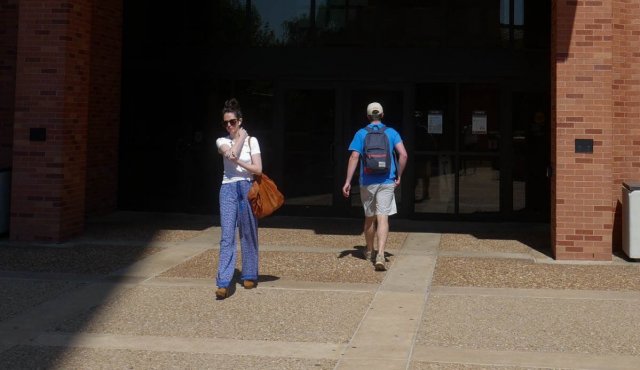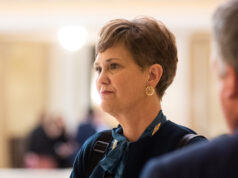

“I hope I die before I pay off my student loans because I don’t think I can pay them off in my lifetime. My greatest fear is that my health will fail, I won’t be able to work, and they will come after me for the money.”
— Gary Sims, Doctor of Osteopathic Medicine.
Dr. Gary Sims’ story is one of dozens we have heard about student loan debt. Most of the stories come from public education teachers, social workers and other professionals who will never earn a physician’s salary.
While researching the topic of student loan debt, we have heard from people whose Social Security checks, disability checks and paychecks are being garnished. In response to stories like these and quantitative data, financial experts, economists and politicians are labeling student loan debt as a “crisis,” one that can no longer be ignored.
In this article, we begin by examining the impacts of student loan debt on society, then explore the downward trajectory of public education funding, and end with what can be done at the individual, state and local levels.
Currently affecting families and economy
Student loans lead to crushing financial debt for many students and/or their parents. Today, there is nearly $1.5 trillion in student loan debt in the U.S., more than double that of 10 years ago. The debt load of people age 50 and older alone is $292 billion. As of December 31, 2018, Oklahomans had $13.5 billion in student loan debt.
When students and their families are paying down student loan debt, they are unable to save for retirement or other purposes. They are not paying down other debt nor buying homes or cars. Some are even delaying marriage and having children.
How did we get here?
In the late 1960s, state and federal dollars funding public higher education started trickling off. Then the “big bang” of funding reversals began in the 1970s in response to the politically active student generation. Governors and state legislators often perceived universities as failing to keep a “campus house in order” ultimately led to a loss of public and government confidence in colleges and universities.
But universities have also played a role in student loan debt by applying the “business/market” model to higher education. Destructive policies “have led them to destabilize their finances, raise tuition, overbuild facilities, create a national student debt crisis, and lower educational quality,” according to U.C. Santa Barbara professor Christopher Newfield in his book The Great Mistake.
The total burden of financing much of higher education has fallen to its lowest common denominator — the student and his or her family. As legislatures have reduced their funding of higher education, students are now paying 63 percent of higher education costs.
Some argue this is a partisan effort by the Republican Party, “that increasingly relies on non-college-educated whites, as young college graduates have voted for Democrats at a historically high margin,” as Derek Thompson wrote in The Atlantic in 2017. That same year, a poll found that 58 percent of Republican and Republican-leaning independents believed higher education had a negative impact on the nation.
Earlier this year in Oklahoma, however, the state’s Republican-led Legislature approved $28 million in new appropriations for higher education, ending a string of years with flat budgets or cuts.
What can be done?
At the national level, some presidential candidates are calling for massive student loan debt cancellation. Researchers from progressive policy groups have found that decreasing student loan debt would stimulate the economy, and they are also calling for change.
While it may seem overwhelming to think about change at the national level, there are actions that can be taken at the state and local level, and Allied Communities of Tulsa Inspiring Our Neighborhoods (ACTION) is pursuing them. Using tools of broad-based organizing, ACTION teaches members to cross lines of race, ethnicity, class and religion to challenge social injustices facing families and communities.
ACTION has developed a presentation that is being given in Tulsa congregations and universities. This presentation provides guidance on student loan debt. ACTION is also studying how debt collectors engage with consumers. Forty percent of Oklahomans have at least one debt in collections, which can range from student loan debt to credit card debt and medical debt.
Rep. Melissa Provenzano (D-Tulsa) and Rep. John Waldron (D-Tulsa) have received approval for a bipartisan interim study to explore a “Student Loan Bill of Financial Rights” which could provide necessary consumer protection regulations much like the regulations used for mortgages and other consumer debts. Connecticut was the first state to implement such a law, and California is on its way to being the most recent state. Oklahoma State Sen. John Michael Montgomery (R-Lawton) is also studying the issue of student loan debt this interim.
Decades of slashing funds for higher education at the state and federal level has led to our current student loan debt crisis. Until states and the federal government restore funds to colleges and universities, we must find acceptable means for “forgiving” or at least ameliorating existing debts acquired by recent generations of students to benefit our future economic, democratic and cultural well-being.
Students and their families can educate themselves on the best way to repay loans by visiting this U.S. Department of Education website.




















